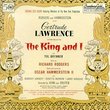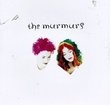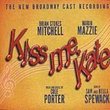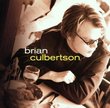| All Artists: Antonin Dvorak, Nikolaus Harnoncourt, Chamber Orchestra of Europe Title: Dvorak: Slavonic Dances Members Wishing: 0 Total Copies: 0 Label: Teldec Release Date: 5/21/2002 Genres: Dance & Electronic, Classical Styles: Chamber Music, Historical Periods, Classical (c.1770-1830) Number of Discs: 1 SwapaCD Credits: 1 UPC: 685738103829 |
Search - Antonin Dvorak, Nikolaus Harnoncourt, Chamber Orchestra of Europe :: Dvorak: Slavonic Dances
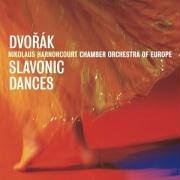 | Antonin Dvorak, Nikolaus Harnoncourt, Chamber Orchestra of Europe Dvorak: Slavonic Dances Genres: Dance & Electronic, Classical
|
Larger Image |
CD DetailsSimilarly Requested CDs
|
CD ReviewsEmotion, not sentimentality. Kevin Currie-Knight | Newark, Delaware | 07/30/2002 (5 out of 5 stars) "Those who already own this magnificent CD will notice that the above words are the first in the liner notes. It is Nikolaus Harnoncourt describing his relationship with not only the slavonic dances, but Dvorak's music in total. He and the Chamber Orchestra of Europe do a brilliant job bringing that sentiment to these dances. I've heard two other recordings and the tendency seems to be to play them sentimentally, as these are melodies using slavonic folk tradition. As a result, most recordings sound somewhat surface-level. Here, this is not the case. The Prestos and Allegros are full of life without being bombastic. And the slower music has a lyrical sweetness while adding a meditational dimension to the music. For those who've not heard these pieces, they are simply the most fun, melodic music (besides maybe Mozarts divertimenti) the classical world has to offer. They will be especially of interest to the classical beginner because they are a series of short dances with more obvious themes and development than most longer works- The closest classical has ever been to pop. Still, this is not only beginners music. Anyone who loves beautiful melodies, seamless orchestration and good times will cherish this recording." A Viennese Link To Czech Music From Harnoncourt John Kwok | New York, NY USA | 03/15/2003 (5 out of 5 stars) "Nikolaus Harnoncourt and the Chamber Orchestra of Europe have created yet another brilliant recording which is as eloquent a statement about music as their Beethoven works recorded in the early to mid 1990's. Musicologist Harnoncourt makes a very persuasive case showing the Viennese roots of Dvorak's Slavonic Dances, demonstrating that the musical legacy of the Austro-Hungarian Empire influenced not only Austrians and Hungarians, but also the Slavic peoples within the Habsburg realm. These are vibrant, stirring performances of these works which were inspired primarily by Czech folk music, but also include influences as far afield as Slovenia and the Ukraine, yet none are based directly on actual folk tunes. Instead, Dvorak immersed himself in the rhythms and styles of Slavic dances, before composing these two distinct suites.Without question, these are probably the finest recordings I've heard of Dvorak's scores. Harnoncourt and the orchestra are splendid in illuminating the rich textures of the composer's scores with exceptional performances from the winds and strings. This exceptional recording clearly deserved its Grammy nomination, and I hope that more splendid recordings will be made with Harnoncourt leading the Chamber Orchestra of Europe, the Royal Concertgebouw Orchestra, the Berlin Philharmonic, and the Vienna Philharmonic - the four great European orchestras with whom he has had a long conducting and recording history. Sadly, sales of his music have lagged in comparison to others, so Teldec has cancelled or postponed some of his important projects, most notably a recording of Bruckner's 9th Symphony which was to be recorded with the Vienna Philharmonic. I recently had the pleasure of hearing Maestro Harnoncourt and the Vienna Philharmonic perform at Carnegie Hall in three programs devoted to Viennese music from the 19th and early 20th centuries, ranging from Beethoven and Schubert to Dvorak, Bruckner and Berg. These were three memorable performances which I hope I shall never forget. And it was a delight to meet him later in person; he's among the most gracious, thoughtful musicians I have encountered." New life for brilliant showpieces Bruce Hodges | New York, NY | 05/22/2003 (5 out of 5 stars) "Harnoncourt has already shown himself to be quite the Dvorak interpreter in other recordings, but this one may trump them all. With the Chamber Orchestra of Europe in blazing form, these performances show why these pieces are often used as encores. (Despite Dvorak's keen sense of pacing, some listeners may choose to listen to just a handful at a time. One can only take so much brilliance at one sitting.)What distinguishes Harnoncourt's vision is his blend of dash and lyricism, with slightly faster tempi in most of these. Op. 46, No. 7 begins with a delicious oboe figure that soon grows into brazen, monumental chords for the entire orchestra. Throughout the disc, Harnoncourt thrillingly goes for broke in the fast sequences, but then just as exciting, allows the fire to die down and lets us see the flickering of the embers. As rhythmically charged as many of the pieces are, many are softer and wistful as well, and he captures all the exhilarating contrasts. The disc was taken from live performances and are amazingly polished; you wonder what it must have been like to be in the audience. The Chamber Orchestra of Europe displays an almost playfully athleticism in following Harnoncourt's lead, and they produce a ravishing sound. The woodwinds, especially, have to be heard to be believed. I have admired Dohnanyi and Cleveland in these pieces for years, and still do, but this is the version I would recommend to anyone who hasn't heard them before. Just outstanding in every way."
|

 Track Listings (16) - Disc #1
Track Listings (16) - Disc #1


